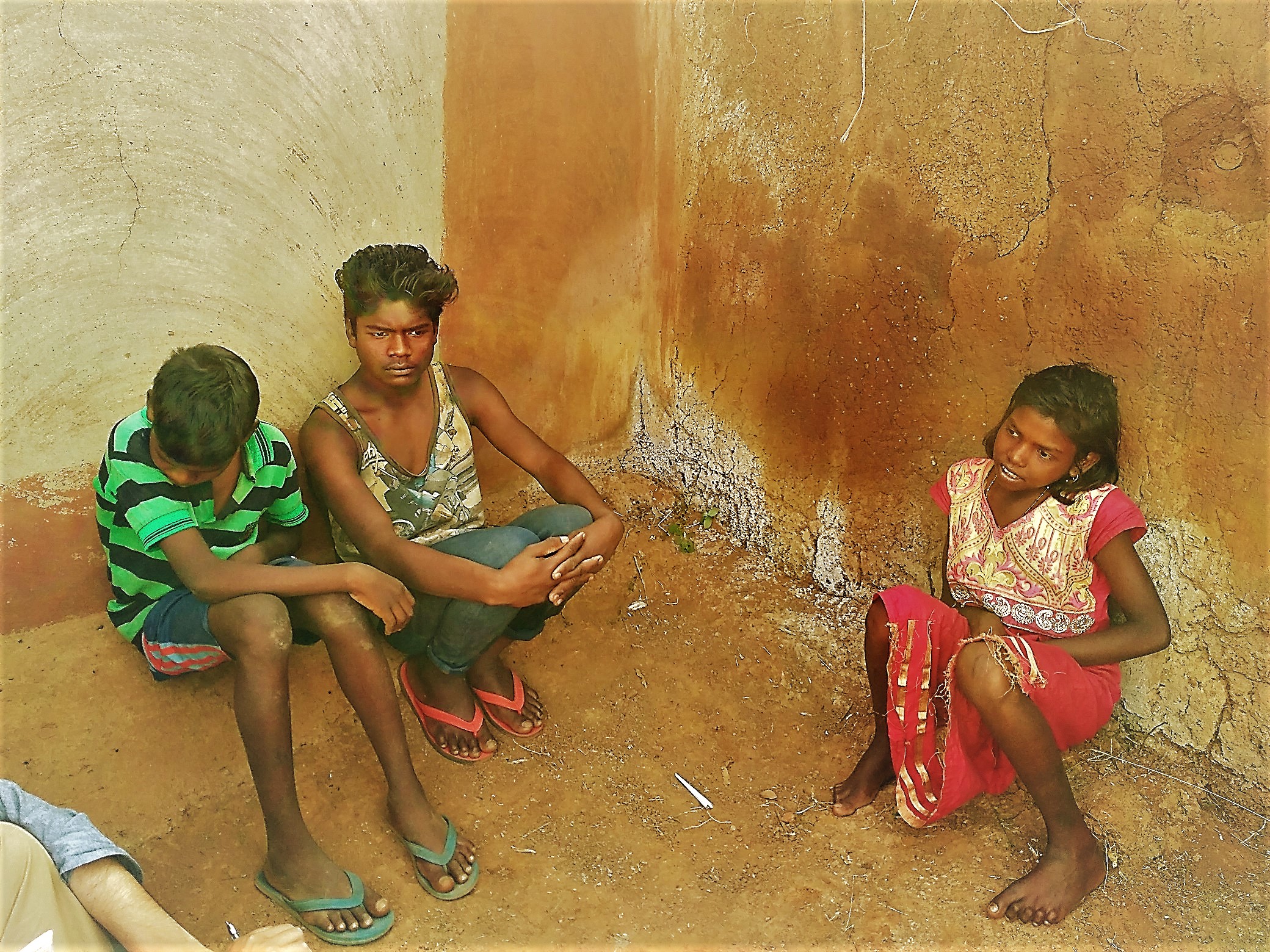The most recent victim is 45-year-old Kaleshwar Soren, who died of hunger and destitution on November 11, in Mahuadanr village of Dumka district.

The children of families denied benefits due to lack of Aadhaar, with poor education, negligible access to health services and employment, are staring at a bleak future.
Speaking to Newsclick, Ashrafi Nand Prasad of the RTF campaign said,”The starvation deaths that have gripped the state need to be understood in the context of biometric linking. Workers, primarily wage workers and older, marginalised sections, are bearing the brunt of the Aadhaar project.”
The most recent victim of the politics over food security was 45-year-old Kaleshwar Soren, who died of hunger and destitution on November 11, in Mahuadanr village of Jama block of Dumka district. Nand Prasad said, “The ration card of Kaleshwar’s family, along with those of 27 others were cancelled in 2016 following their failure of linking the ration cards to Aadhar.”
Twenty-six households were reinstated on the ration list a year after their card was cancelled and after they submitted their Aadhaar and bank account details. Jian Kisku of the same village, whose ration card was also cancelled in 2016, is yet to get back on the ration list as neither he nor his wife has Aadhaar.
Similarly, after the cancellation of the card, Kaleshwar was struggling to survive on the food given by his neighbours, his family was not receiving any grains under the public distribution system (PDS) as their ration cards were not linked. According to the ration dealer, after the cancellation of the ration card, when Kaleshwar was asked to submit his Aadhaar to get back on the ration list, he could not submit it as he had misplaced it.
Living in extreme deprivation, multiple families like that of Kaleshwar’s, are currently suffering from the lack of availability of food and social support from the state, the RTF campaign said.
Prasad added,”With the slew of deaths in 2017, the government came up with a “solution”in the form of Khadyan Kosh (grain bank) Yojana, where the mukhiya (Head) of the Gram Panchayat can give grains to vulnerable families, in the case of Kaleshwar, the claims of the Mukhiya of providing Kaleshwar with support cannot be verified.”
Kaleshwar’s death comes close on the heels of the deaths of Moti Yadav of Margomunda block (Deoghar). Yadav was visually impaired, despite this he did not receive disability pension.
Another death–Of the 75-year-old Sita Devi points towards the failure of the Aadhaar project, despite having a ration card, due to her age and illness Devi could not authenticate her identity which led to the denial of foodgrains to her. She was also living in destitution as she could not receive her pension because her bank account was not linked with the Aadhaar card.
The 17 starvation deaths, since September 2017, include eight adivasis, four Dalits and five of backward communities. Contrary to the government’s claims, the immediate causes of these deaths include denial of foodgrains due to absence of a ration card, cancellation of ration cards not linked with Aadhaar, or Aadhaar-based biometric authentication failures, the RTF campaign said.
Denial of social security pensions and absence of work under the National Rural Employment Guarantee Act further contribute to the destitution of the starvation victims and their families. At least seven victims were eligible to social security pension, but were either not issued a pension or did not receive their pension due to administrative lapses or Aadhaar-related issues. Not to mention the children of these families, with poor education, negligible access to health services and employment, are staring at a bleak future.
The deaths also highlight the inadequate coverage of the Antyodaya Anna Yojana (AAY). Most of these families, despite living in acute poverty, did not have a AAY ration card. Prasad said,”The deaths will only increase if our demands are not paid any heed to, we have been demanding the universalisation of PDS, regular ration and increment of NREGA wages.”
Along with these concerns the Right to Food campaign has also highlighted issues of the inclusion of pulses and edible oil in PDS and doing away with the mandatory requirement of Aadhaar in welfare programmes.
The deaths of the five persons come after the government’s announcement of the Khadyan Kosh, which is now rendered as merely a token scheme. The deaths also point to the failure of the Jharkhand government exposing their lack of commitment for social security and right to food.
Courtesy: Newsclick.in
